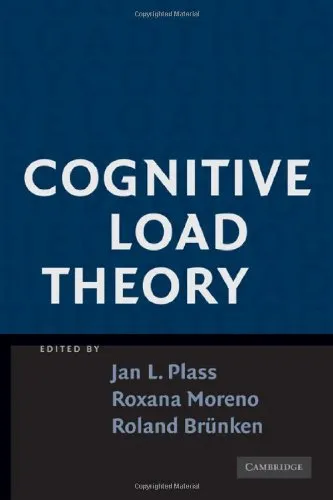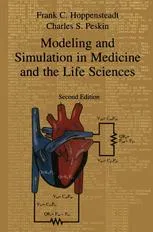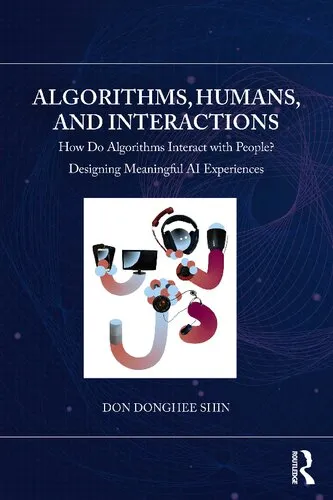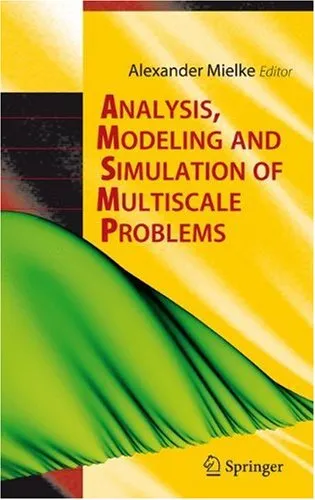Cognitive Load Theory
4.4
Reviews from our users

You Can Ask your questions from this book's AI after Login
Each download or ask from book AI costs 2 points. To earn more free points, please visit the Points Guide Page and complete some valuable actions.کتاب های مرتبط:
Introduction to Cognitive Load Theory
Welcome to an in-depth exploration of Cognitive Load Theory, a groundbreaking work by Plass Jan L., Moreno Roxana, and Brünken Roland. This book dives into the intricacies of cognitive processes and how they affect learning and performance. As an essential resource for educators, instructional designers, and psychologists, this text provides a comprehensive guide to understanding and applying cognitive load theory in diverse educational settings. This introduction will provide a summary of the book, key takeaways, famous quotes, and an examination of why this book is vital for today's educational landscape.
Detailed Summary of the Book
In Cognitive Load Theory, the authors address how the human brain processes information and the implications of these processes for education and learning design. Central to the book is the concept that our cognitive capacity is limited and that learning environments must be designed to optimize this precious resource, thereby enhancing learning effectiveness.
The book begins by exploring the architecture of working memory, the centerpiece of cognitive load theory. It discusses how working memory capacity is limited and can easily become overloaded, leading to decreased learning efficacy. The authors meticulously explain different types of cognitive load: intrinsic, extraneous, and germane. Each type of load has distinct implications for instructional design.
A significant portion of the book is dedicated to strategies for managing cognitive load. This includes techniques for reducing extraneous load, which is often a result of poor instructional design, and optimizing intrinsic load, which is related to the inherent difficulty of the material itself. The authors provide practical suggestions and examples across different domains of knowledge and educational contexts.
The latter sections explore advanced applications and the latest research developments in cognitive load theory, offering insights into complex cognitive tasks and the role of technology in learning. Throughout, the authors underscore the importance of adapting educational methods to individual learners' needs, enhancing the adaptive learning experience.
Key Takeaways
- Cognitive load theory is crucial for understanding how individuals learn and the limitations of working memory.
- Designing effective instructional materials requires reducing unnecessary cognitive load, fostering deeper, germane processing.
- Adapting teaching methods to manage cognitive load can significantly enhance learning outcomes.
- The integration of technology into learning environments can be optimized by applying cognitive load principles.
Famous Quotes from the Book
"Understanding the constraints of working memory is crucial for the development of effective educational practices."
"The true art of teaching is knowing what not to do to avoid unnecessary mental effort for learners."
Why This Book Matters
Cognitive Load Theory is a must-read for anyone involved in education and instructional design because it offers a scientifically grounded view of how learning happens. In an era where knowledge delivery is increasingly complex and diverse, understanding and managing cognitive load paves the way for more effective educational practices. Moreover, by harnessing the principles outlined in this book, educators can enhance learner engagement, foster better retention of information, and ultimately, contribute to more successful learning outcomes.
The importance of this book extends beyond academic circles. With the rise of digital media and technology in education, the insights provided by cognitive load theory are crucial in informing the development of digital learning materials and platforms. Developers, educators, and training specialists alike will find the strategies for reducing extraneous load and enhancing germane load invaluable in creating intuitive, engaging learning experiences that cater to the complex needs of modern learners.
Free Direct Download
You Can Download this book after Login
Accessing books through legal platforms and public libraries not only supports the rights of authors and publishers but also contributes to the sustainability of reading culture. Before downloading, please take a moment to consider these options.
Find this book on other platforms:
WorldCat helps you find books in libraries worldwide.
See ratings, reviews, and discussions on Goodreads.
Find and buy rare or used books on AbeBooks.
1187
بازدید4.4
امتیاز50
نظر98%
رضایتReviews:
4.4
Based on 0 users review
"کیفیت چاپ عالی بود، خیلی راضیام"
Questions & Answers
Ask questions about this book or help others by answering
No questions yet. Be the first to ask!














